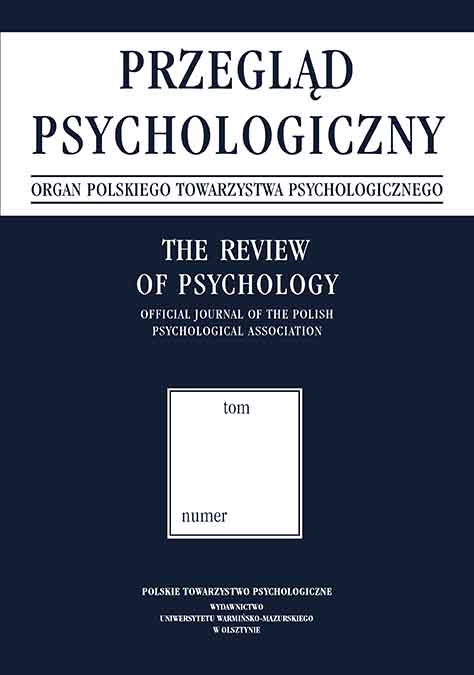Aktywność fizyczna a funkcjonowanie poznawcze osób w średniej i późnej dorosłości – wyniki badania wstępnego
Physical activity and cognitive functioning in middle and late adulthood - results of a preliminary study
Author(s): Natalia Gawron, Aleksander Zębrowski, Beata HintzeSubject(s): Neuropsychology, Health and medicine and law
Published by: Wydawnictwo Uniwersytetu Warmińsko-Mazurskiego w Olsztynie
Keywords: Neuropsychology of cognitive aging; physical activity;
Summary/Abstract: Objectives: The objectives of the study included characterizing the physical activity (AF) of people in middle and late adulthood and answering the question whether the frequency of their AF and the level of cognitive functioning are related.Method: The study was a cross-sectional study involving 52 women and 30 men aged 50 to 80. To assess cognitive functions, subtests from the Wechsler Intelligence Scales for Adults, revised version - renormalization WAIS-R(PL): Digit Repetition, Block Stacking and Digit Symbols, as well as the Color Connection Test (CTT) and the Link Cube task were used. Physical activity was measured using the International Physical Activity Questionnaire – Long Version (IPAQ-LF) and a pedometer, which participants wore for a week. Associations between cognitive functioning and AF were assessed using nonparametric correlations. Additionally, cognitive functioning and AF were compared in healthy subjects, people with one chronic disease, and people with two or more chronic diseases.Results: The results revealed few low correlations between cognitive functioning and AF. Walking measured with a pedometer was average in the study participants, and AF declared in the IPAQ-LF questionnaire was very high. Higher declared moderate and intense AF correlated with higher performance of the Block Stacking and Link Cube tasks. Higher declared AF during free time correlated with better CTT performance. More AF at work correlated with higher performance on most tasks. Activity measured by the number of steps did not correlate with the level of cognitive functioning. Greater step counts correlated with less time spent inactive on the IPAQ-LF. Additionally, healthier people performed better on cognitive tasks and walked more steps than people with chronic diseases.Conclusion: The research provided significant knowledge about AF in people in middle and older adulthood. Research has expanded knowledge about the relationships between AF in the real environment and the cognitive functioning of these people.
Journal: Przegląd Psychologiczny
- Issue Year: 67/2024
- Issue No: 1
- Page Range: 69-92
- Page Count: 24
- Language: Polish

